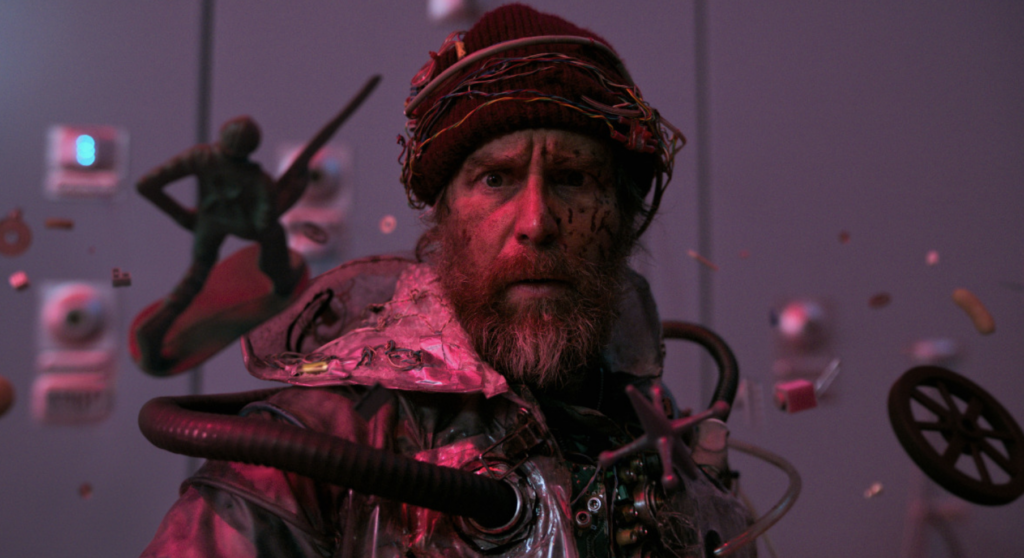A24’s Death of a Unicorn stars Jenna Ortega in a fantasy that’s less Lisa Frank, more Jurassic Park
There’s a very specific kind of film that arises from eras where the MPAA doesn’t know what it was doing.
Before the invention of the PG-13 designation, there were just G-rated films, PG, and R. Films like Gremlins and Temple of Doom forced the ratings board’s hand when parents became upset that there was no clear line in the sand between family-friendly and A Lot Of Dead Bodies. In the ’90s, a different wave of confusion hit when flicks like Jurassic Park were ostensibly rated for older audiences, but still had Happy Meal toy tie-ins. More recently, the power of the studios allowed for big-budget action films where tens of thousands of people died in summer tentpole films and snuck away with the PG rating, while indie flicks with short sex sequences found themselves on the commercially unviable NC-17 track.
Major studios not really knowing where to slot a big flick, or what audience they’re even aiming for, has always been a fascinating no man’s land that either makes all-time stone-cold classics or forgettable whiffs at the plate. Sometimes that’s a trickle-down from the filmmakers themselves, sometimes it’s an artistic war between creatives and marketing.
A24’s new feature Death of a Unicorn feels born from these gaps in genre and intent. The film is undeniably fun, but whether it’s trying to be fun or furious or fearful is a bit of cinematic Russian roulette.
Elliot (Paul Rudd) and his estranged daughter Ridley (Jenna Ortega) head out to a remote cabin to spend time with Elliot’s bosses, the billionaire pharmaceutical empire of the Leopold family. Things go awry when Elliot accidentally hits something on the drive to the Leopold estate: Based on the horse-shaped body, horn on its forehead, and magical blood, it’s pretty clear that the presumed-dead creature is an actual unicorn. Ridley is devastated by the unicorn’s death and accidentally mainlines the secrets of the universe in the process. But the main characters discover the unicorn’s blood possesses seemingly unlimited healing capabilities, and patriarch Odell (Richard E. Grant), matriarch Belinda (Téa Leoni), with heir Shepard (Will Poulter) see the fiscal future in an all-purpose cure—immediately arranging for the worst of the worst of the 1% to live eternally, for their own considerable fiscal gain.
Unfortunately for all involved, this unicorn was not the last of its kind. And what are unicorns if not, categorically, mythological monsters of the oldest kind?
Death of a Unicorn is probably the closest thing to a slasher film you’ll ever see featuring Paul Rudd. [For Ortega, this might take the place of the next Scream, whatever the situation is with that IP.] But before we get to hoof-stomping, teeth-nashing fantasy revenge, there are a lot of other genres that DoaU wants to show it can dabble in. The result is far less enthralling than the filmmakers probably hoped for, but not a total bust.
The entire film can be best understood by simply unpacking its pre-credit sequence. You’ve got a father and daughter with a trauma-shaped disconnect, the dad’s workaholic habits battling against a disconnected introvert, and then an incident on a secluded mountain road that tests their mettle against a world where crass capitalism and teenage pathos cannot co-exist. It’s charming, it’s dramatic, it’s satirical, it’s arty, and then Paul Rudd beats a unicorn to death with a tire iron—drenching himself and his daughter in the goo of its purple blood. There’s an unexpected cruelty that emerges from nowhere here, and one of the actors is playing this for laughs, while the other sobs uncontrollably.
If you’ve been primed to think this whole thing is a one-note horror flick, some of this lands. If you were hoping for more, you’ll probably wind up like our theater: mostly adrift in wondering how to square what the movie tells you to feel and what the movie actually feels like.
Death of a Unicorn hopes to impart nothing of real weight, even though it gestures in numerous directions. There isn’t a character in the impressively long roster who changes one iota, for better or worse, in the runtime of the feature. At best, that’s uninteresting; at worst, Paul Rudd comes off less like a father trying to re-open his heart than off-putting and deliberately stupid. There’s a lot of “first draft” energy in the script, with plot points that meander toward their act structure requirements.
There’s also a lot of “first draft” energy in the creature C.G.I. which is, as always, more effective in the dark than in the (inexplicable) shift to daytime settings, where the limitations of what the team was capable of are on full display, unfortunately.
Director-writer-producer Alex Scharfman built a creature here that cross-mutated parts of other genres (and other stories) into a misaligned melding that stumbles when it should soar. The mythological beast at the center of this film never escapes its torment, and while this isn’t exactly torture for the audience, it isn’t anything memorable either. In my experience with cinema, that’s worse.
[Editor’s note: at least the film brings with it a new St. Vincent track, as a peace offering.]






